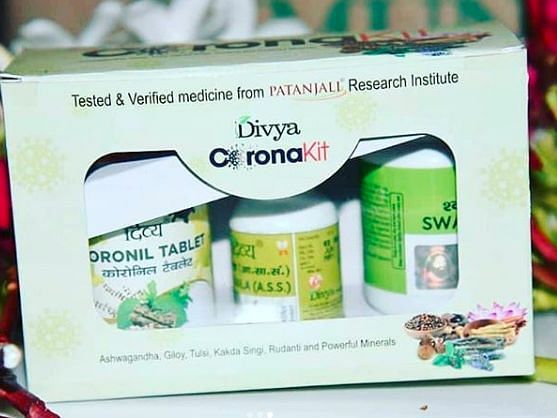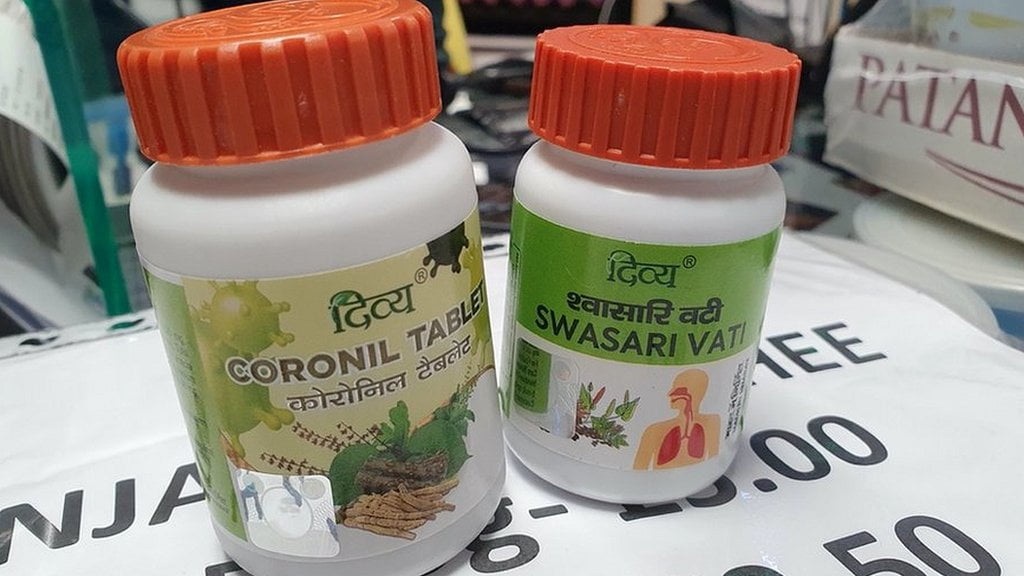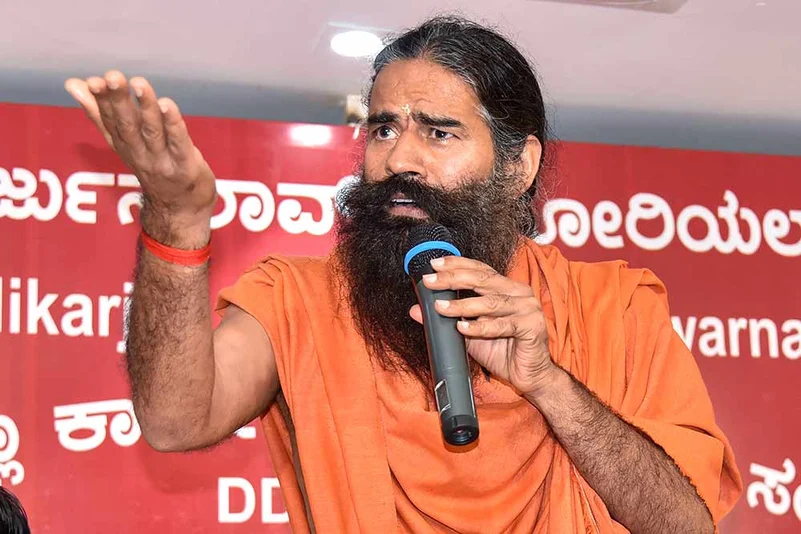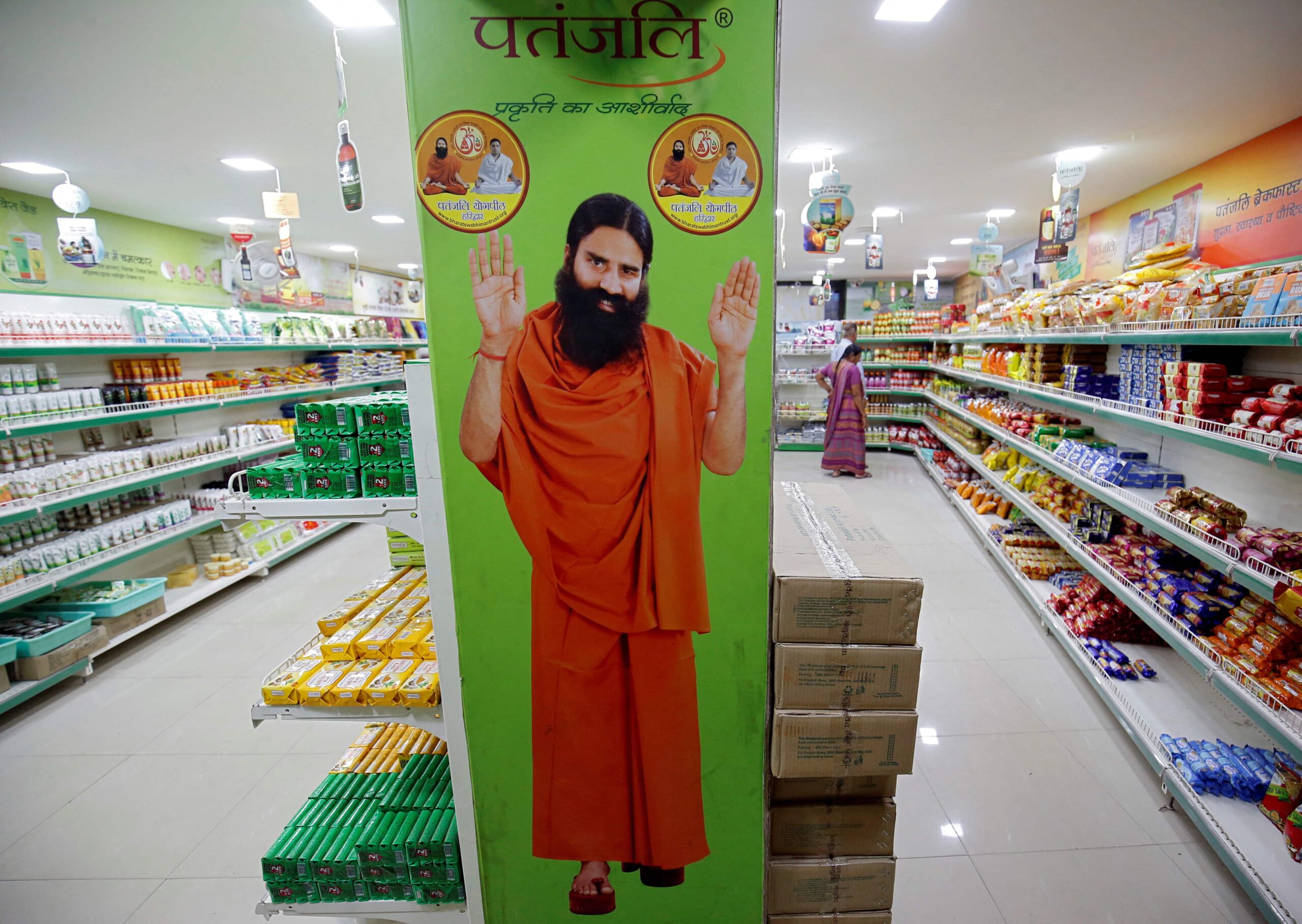On April 10th Supreme Court of India rejected an unconditional apology filed by Patanajali’s Baba Ramdev and Acharya Balkrishana for a misleading advertisement case. Previously in November 2023, the Supreme Court had strictly warned Patanjali against the violating laws related to misleading medical advertisements. It also directed the company not to make sweeping comments, which diminish other systems of medicine.
On April 10th Supreme Court of India rejected an unconditional apology filed by Patanajali’s Baba Ramdev and Acharya Balkrishana for a misleading advertisement case.
However, Patanjali failed to adhere to these directions, which led the court to issue a show-cause notice on why contempt proceedings should not be initiated. In response of this Baba Ramdev and Balkrishna tendered an unconditional apology, which Justice Kohli firmly refused to accept. The judge criticised the apology as mere ‘lip service’, stating that the yoga guru was taking the contempt proceedings lightly. The court also strongly disapproved of Balkrishna’s statement terming the Drugs and Cosmetics Act as ‘draconian’.
The judiciary pulled up the government as well for its alleged inaction against Patanjali’s unrealistic claims about its product efficacy and denigration of allopathy during the COVID-19 peak. The court questioned why authorities chose to ignore the issue throughout. Although Baba Ramdev assured no such misleading advertisements would be issued, the court aimed to send a strong message. It stated Patanjali was willfully and deliberately repeating violations of court orders and the ‘unconditional apology’ affidavit is unsatisfactory.
The Supreme Court warned for strict action and made it clear it cannot disregard court orders with impunity. Patanjali now faces the prospect of contempt proceedings for failing to address the misleading advertisements issue satisfactorily despite multiple reprimands.
Issues with Coronil and Patanjali’s misguided advertisement
In June 2020, amidst the COVID-19 pandemic, Patanjali launched ‘Coronil’ – an Ayurvedic kit claiming to cure COVID-19. Baba Ramdev and Acharya Balkrishna marketed it aggressively, stating it had undergone clinical trials and could cure 69% of patients within 3 days. However, the AYUSH Ministry stated it had not approved Coronil and asked Patanjali to stop advertising it.
Despite this, Patanjali went ahead with promotional campaigns across news channels, as it was a major advertiser. Within 4 months, it sold 25 lakh Coronil kits worth ₹250 crores. However, the clinical trial at NIMS Jaipur had only 100 asymptomatic patients with mild symptoms who would likely recover without medication. NIMS itself denied conducting any trial.
Within 4 months, it sold 25 lakh Coronil kits worth ₹250 crores.
Unaffected by everything, Patanjali continued the misinformation, falsely claiming Coronil was WHO-certified and that allopathic medicines killed COVID patients. This invited censure from the medical fraternity and state governments like Maharashtra banned Coronil’s sale. However, Haryana distributed 100,000 free kits.

In 2022, the Indian Medical Association filed a case against Patanjali for targeting allopathy. In 2023, the Supreme Court warned of a ₹1 crore fine if Patanjali advertised cures for diseases like cancer. But Patanjali defied it and kept advertising cures for diabetes and hypertension.
The Coronil saga exemplifies how unethical companies exploit crises, spread misinformation and defy regulations to sell dubious products, putting public health at risk for profits. It underscores the need for stricter oversight on deceptive advertising in the healthcare sector.
What are misleading ads?
In today’s increasingly commercialised world, consumers are bombarded with advertisements from every direction. While advertising is a legitimate way for companies to market their products, a disturbing trend has emerged – the rise of misleading and deceptive advertising practices.
While advertising is a legitimate way for companies to market their products, a disturbing trend has emerged – the rise of misleading and deceptive advertising practices.
What exactly constitutes a misleading advertisement? It’s when companies use false, exaggerated or unrealistic claims about their products. This can range from overstating benefits, expressing unrealistic attributes, using professional jargon to mislead, showing fake certifications, deceptive imagery or celebrity endorsements that create an untrue aspirational appeal.
What does the data say?
According to the Advertising Standards Council of India’s (ASCI) half-yearly complaints report, the healthcare segment emerged as the most violative category for advertisements, accounting for 21% of all content examined. This surge is attributed to a high volume of drug and medicine ads on digital platforms. Following healthcare were the education (18%) and personal care (16%) sectors. Online platforms hosted a staggering 79% of problematic advertisements. The digital realm saw a 34% increase in complaints (4,491) and a 27% rise in the number of processed ads (3,501), constituting 79% of total violations.
The report, covering April to September 2023, shows a 22% yearly increase, with 16% of processed ads making dubious claims as “magic remedies.” This violates the 1954 Drugs and Magic Remedies Act prohibiting certain disease/disorder treatment advertisements. ASCI noted a significant rise in ads potentially violating this law by promoting cure/treatment claims. Complaints can be raised to ASCI by the public, industry, consumer organisations or the government. Notably, 21.3% were from consumers, indicating substantial public involvement in upholding ad standards. ASCI referred 565 advertisements to the AYUSH Ministry in just six months, compared to 464 for the entire previous financial year.
The data highlights how digital advertising has become a major avenue for misleading healthcare promotions flouting regulations. With public complaints on the rise, stronger monitoring and enforcement mechanisms are urgently needed to rein in unethical advertising practices, especially in the sensitive healthcare domain.
Some of the most egregious offenders are advertisements targeted at children. Kids are incredibly susceptible to taking marketing claims at face value. Food and beverage companies routinely advertise nutrient-poor junk foods as making children healthier and more energetic. Milk brands claim their products can enhance sports performance. These advertisements by celebrities have the implicit message that buying these items will somehow approximate a celebrity’s charmed life.
Food and beverage companies routinely advertise nutrient-poor junk foods as making children healthier and more energetic.
But the problems with misleading ads extend far beyond manipulating impressionable young minds. There are numerous cases of stores luring customers with discounted items only to pressure them into more expensive purchases. Despite bans, we still see advertisements for harmful products like cigarettes, alcohol and chewing tobacco on TV.
At their core, misleading advertisements violate fundamental consumer rights – the right to accurate information, the right to safety from unsafe products, and the right to protection against unfair trade practices. They represent a betrayal of trust between businesses and the customers they rely upon.
What’s particularly alarming is how prevalent and pervasive this issue has become in India. 18.7% of the world’s children reside in India, watching 3-4 hours of television per day where they are inundated with manipulative marketing content. Existing laws like the Drugs and Cosmetics Act and the Food Safety and Standards Act have provisions against misleading claims, but they provide little deterrence in practice.
The key reasons behind it is that these laws are outdated and unenforced regulations that essentially give advertisers free rein to make exaggerated, fanciful claims in pursuit of higher profits. A lackadaisical legal environment has allowed this fraudulent advertising to proliferate unchecked.
How can India progress when a fundamental tenet of capitalism – the ability for consumers to make informed choices – is being constantly undermined?
It is very clear that these misleading advertisements pose serious consequences beyond simply being an ethical lapse. They can deteriorate a nation’s overall business climate and economic standing if left unchecked. How can India progress when a fundamental tenet of capitalism – the ability for consumers to make informed choices – is being constantly undermined?
As conscientious citizens, we must demand substantive action to curb this menace. Updating antiquated laws, proactive enforcement with deterrent penalties, and a watchdog body with real teeth are crucial to monitor advertisements across all media. Only then can we protect consumer rights and marketplace integrity.
In the endless hawking of products, truth in advertising has become an inconvenient casualty. It’s time to restore transparency, accountability and fair business practices before deceptive marketers erode consumer trust completely. A vibrant economy depends on it.
About the author(s)
Rahul is a PhD candidate at the Department of Humanities and Social Sciences, MNIT Jaipur. His research focuses on democratic decentralization, local governance, and political-administrative dichotomies. He is also interested in contemporary Indian socio-political thought and alternate histories, particularly those highlighting social and spatial marginality. Rahul holds a master's degree from the Faculty of Social Sciences at South Asian University. He has a deep passion for Hindi literature and enjoys discussing it at length.










